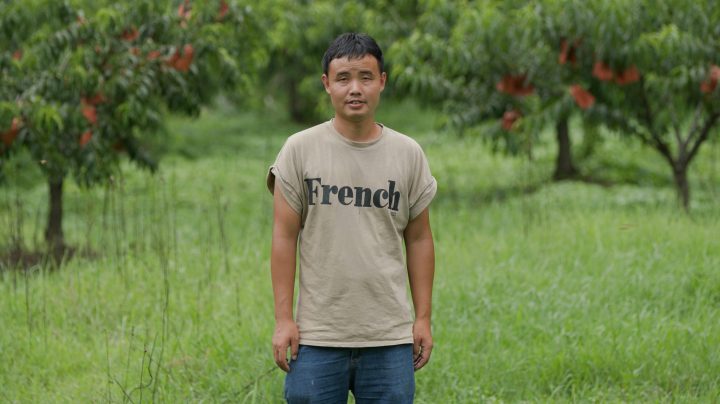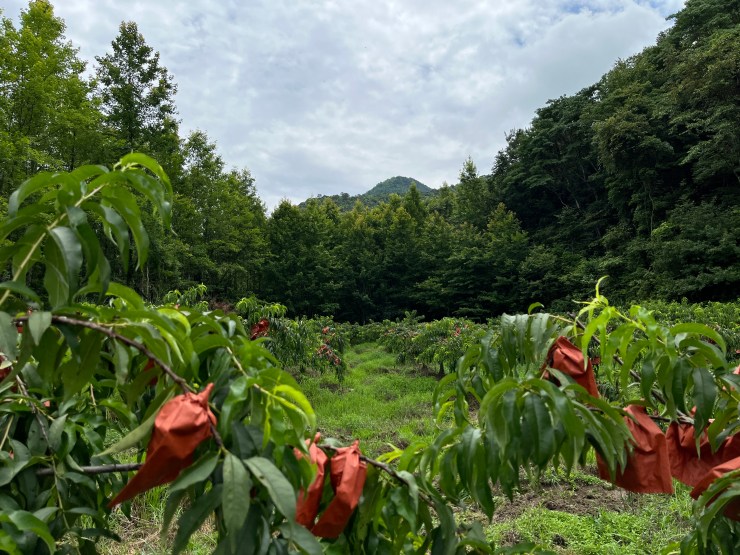
Reviving China’s rural economy, one peach tree at a time

Peach Village sits in lush mountains right at the start of the Gan River in the central Chinese province of Jiangxi. 40-year-old Liu Pingfu grew up here.
After he graduated from junior high school, he traveled 360 miles south to work in the manufacturing hub of Dongguan.
“In the early 2000s, so many people left our village to find work,” he said. “Even now, about 70% to 80% of the villagers are working away from home.”
In 2021, there were 171 million people in China’s countryside who left for jobs in the big cities. China’s government has been trying to turn back the tide as the Chinese economy is not growing as fast as before and there is high unemployment. Officials have pushed for young entrepreneurs to return and revitalize the countryside. However, the task is complex.

When Liu was growing up, he was surrounded by rice paddies and lotus ponds.
“We picked bamboo shoots up in the mountains and also made bamboo paper,” he said. But none of the crops was a big moneymaker, which is why he had to go and work at a cell phone factory in Dongguan city.
Liu, like many other workers from the village, sent most of his salary back home. Initially, the money was used to pay off expenses and renovate or add an extra floor to family homes. Later, families with more money would buy condos in a nearby county, and that pushed up property prices there. These days, men in most of China’s countryside need to have a condo outside the rural villages if they are to have any hope of attracting a wife. It is another reason young people keep going to the bigger cities to find better paying jobs.
The people remaining in Peach Village are mostly older. The local elementary school has closed for lack of children.
Even the crops have changed, according to resident Hu Hang.
“We’ve switched to peach trees. It’s more economical,” Hu said on the drive up to Peach Village.
It’s more economical because growing peach trees requires far fewer workers.

Both Hu and Liu quit their big city jobs in recent years and have invested in the village peach orchard, which is run like a cooperative. Hu said he always felt burnt out working as a coder in Shenzhen. Meantime, Liu returned because he was tired of being separated from his child, who was being cared for by his elderly parents.
“Our parents don’t approve of us coming back to do agriculture,” Liu said, adding that his family thought the sector was too reliant on weather and is risky. And Liu and Hu are not earning as much as they did in the big cities — not yet.
Plus, the village has now been designated a national nature reserve, which according to locals means they cannot do much else to earn money other than growing peaches.
Peach farmer Luo Changgen has worked hard on the land to send his three children to college. His daughter has graduated, while his twin sons are still studying their masters degree and one of them intends to get a doctorate too.

“If my children come back to the village after studying for so many years in college, I don’t think they’ll ever achieve their true potential,” Luo said.
But ex-factory worker Liu thinks there is a bright future here, selling peaches to wealthy households in the big cities.
“People left the countryside to survive, now they come back because there is hope,” he said.
“First we need this peach orchard to make money, then we can attract young people back to the countryside.”
Additional research by Charles Zhang
There’s a lot happening in the world. Through it all, Marketplace is here for you.
You rely on Marketplace to break down the world’s events and tell you how it affects you in a fact-based, approachable way. We rely on your financial support to keep making that possible.
Your donation today powers the independent journalism that you rely on. For just $5/month, you can help sustain Marketplace so we can keep reporting on the things that matter to you.

















